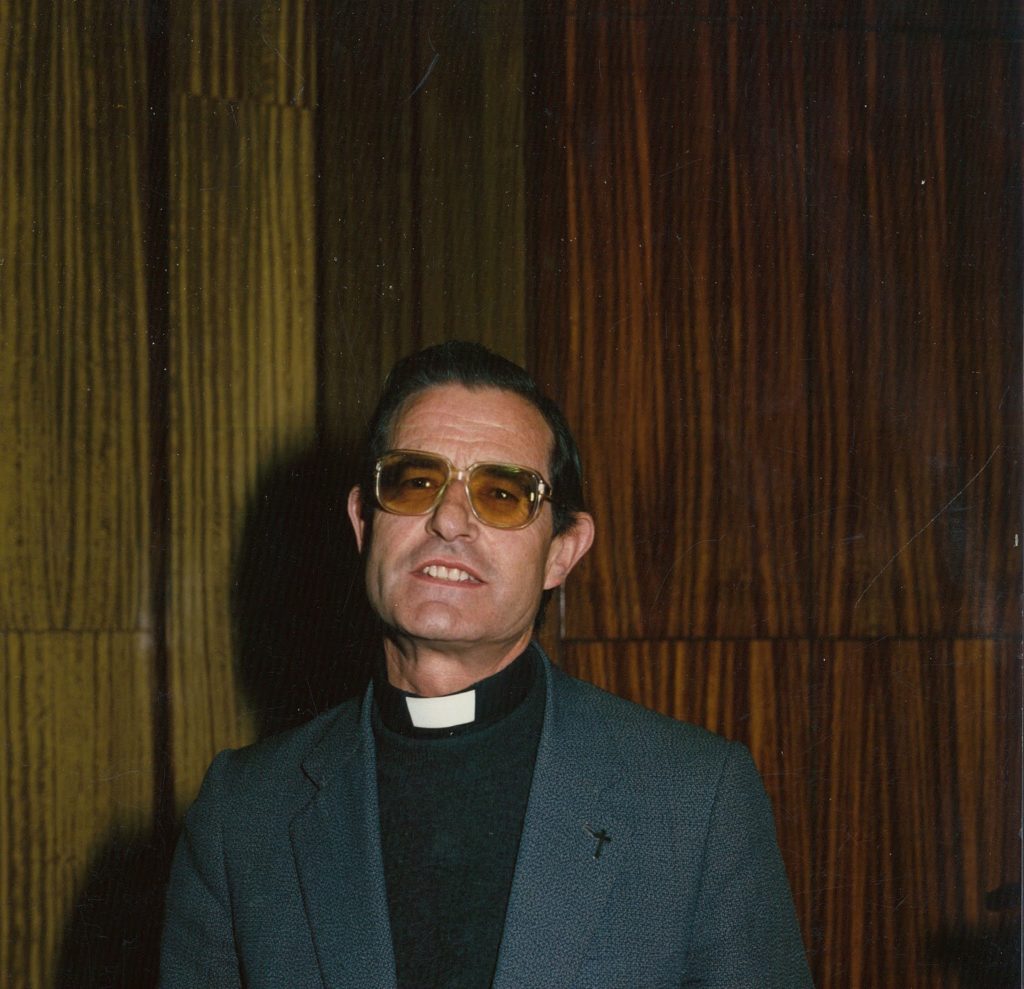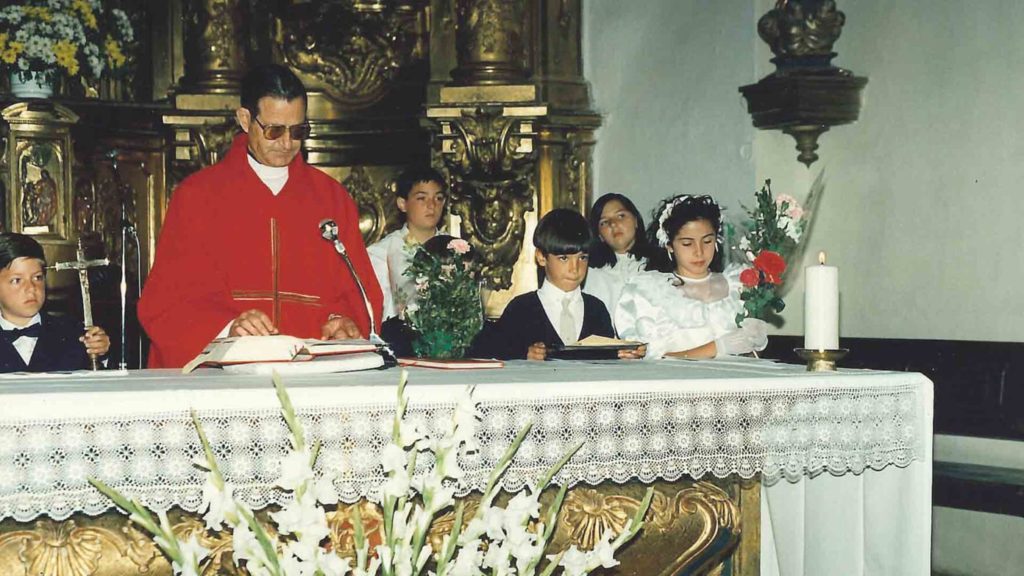









Born in the town of Prádena, Segovia (Spain). He was born on October 22, 1933. He grew up in a Christian environment surrounded by the beauty of the mountains. In his poem Predena of my roots expresses his mountain roots in which he was able to see the footprint of the Creator:
I love my people, Lord, /everything in it speaks to me of You:/ the junipers, monks of the forest,/ always faithful to their salmic prayer of dark green silence/ and to their austere contemplative solitude;/ the oaks, vegetal monuments to the fortress,/ armed knights of peace,/ with noble scars in their entrails/ to host secluded doves and shy birds;/ the holly trees, permanent Christmas of the mountain landscape,/ whose smile is enlivened/ with the icy winds of the north/. The caves, stony beauty of its fertile entrails.


The honesty and honesty of the people, along with the other elements of the environment would awaken in him his poetic vocation, and soon after, at the age of 17, his priestly vocation. He graduated in Theology from the Pontifical University of Salamanca. Several parishes in the diocese of Segovia benefited from his ministry. Also the young people of Catholic Action, the young women of the Residence of the Parish Action Missionaries, the members of the Rural Apostolate, the Cistercians of San Vicente el Real.
He was the soul, for many years, of the veneration of the Virgen de la Fuencisla, Patroness of the city, from his position as vice president of the royal brotherhood. And his work for more than three decades in the Andrés Laguna Institute of Segovia is very noteworthy for the sowing of truth, freedom, love and beauty that he spread among his students.
His creative facet was constant. Small diaries are preserved where he wrote as he went along, taking advantage of the inspiration of the moment. Not only inspiration, but also work, because he looked for synonyms, crossed out and corrected so many hendecasyllables that he unites as an outstanding sonneteer. Among his published works we can highlight: This light (1969), High silence (1989), Segovia, Home with Mother (1983), In God's home (1993), Letters to Heaven (1999), Paradise Subsidiary(1999). He has a large collection of poems, most of them unpublished. Among his awards is the XVII Fernando Rielo World Prize for Mystical Poetry (1997).
His poetic art knew how to unite love for God with love for man and the landscape, in that vital fusion as priest and poet. In his work, depth, simplicity and tenderness are combined with the joyful amazement of his convictions as a man of faith.


The sonnets that Rafael wrote during the 36 days he was in the hospital suffering from a fatal illness, which he lived exemplarily, are well known. In them the illness appears as rupture, decadence, weeping, defeat, bankruptcy, cross, pain. His dialogue with God leads him to focus on Him, to feel His presence better, to accept the divine plan, to ask Him for strength, to seek His face, to thank Him. It is also shown as a balance of his life: he consecrated his springs to Him, he knows he is on fire in his bonfires of love, he sowed affection for God, he hopes to reach the madness of divine love that he was looking for.
He was able to celebrate his last Mass on December 23, 1999 on the 38th anniversary of his ordination to the priesthood. At dawn on Friday, December 31, he gave his soul to God. He wanted to deserve this epitaph: His time was always Christmas;/ his steps, the opening of paths; his gaze, the sowing of smiles; his heart, the home of the WORD. As a testament he wrote in his last sonnet: We must be a perennial spring/ that receives Love, thrice holy/ God is Love, you know! And so much, so much, / that tastes the tree and recovers it.
We count on this valuable instrument of evangelization: the poetry of a contemporary priest in love with his vocation.
In the blog https://rafaelmatesanz.blogspot.com/ can be found and enjoyed in his literary works.












